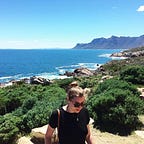In a community defined by disaster, COVID-19 represents a new blow to another generation
Families in Shomiti-para in Cox’s Bazar, Bangladesh, have spent years recovering from one of history’s deadliest cyclones. Now COVID-19 threatens to undo the progress that’s been made.
Coastal Cox’s Bazar is home to the world’s longest beach and known for its dried fish markets and bustling tourism. The community that’s developed in the Shomiti-para ward is one of the poorest in the city, with a fifth of residents living below the poverty line according to local organizations.
The COVID-19 pandemic forced many of these families to look to government support when businesses closed and restrictions on movement made even informal work impossible. While the spread of the virus has slowed, almost half of the city’s population struggled to access food in the last six months, according to a UN World Food Programme (WFP) assessment.
Approximately 40 percent of those surveyed have not had any incomes since March. “There was no scope for earning during the lockdown,” says Golam Mustafa, 48. “I had to borrow money from others and received assistance from the government. We somehow manage to survive now.”
Golam and his wife, Jahida, have lived in the Shomiti-para neighborhood for 23 years. Their home, constructed of corrugated iron and bamboo, sits along an inlet that leads from the Bay of Bengal into Cox’s Bazar town.
Just outside their front yard are rows of netting atop bamboo stilts, where fish are laid out to dry, an extremely popular ingredient in Bangladeshi coastal cuisine. Besides catching and consuming it, many families in Shomiti-para earn a living selling it in the nearby fish markets.
Even the boats that were in the sea were blown away.
COVID-19 isn’t the first crisis they’ve faced. In 1991, one of Bangladesh’s most deadly cyclones ripped through nearby Kutubdia and surrounding regions, resulting in 138,866 recorded deaths and billions of dollars in damage. Most of the families now living in Shomiti-para were displaced from Kutubdia and relocated here.
“There were very few cyclone shelters in Kutubdia in 1991,” recalls Golam. “A lot of people died due to the cyclone. When we took shelter on a rooftop, we found that 28 people were trapped in the house. We rescued them by breaking the roof.
“After the cyclone in 1991, I started working on a trawler boat. I had an accident in 1995. I was in the hospital for two months. Then I returned to Kutubdia but in 1997 there was another cyclone that completely destroyed everything. Even the boats that were in the sea were blown away. We left and migrated to Cox’s Bazar.”
The treatment for Golam‘s injury cost BDT 280,000 (over US$ 3,000) and has since prevented him from doing much work. “I started making fishing nets and did other things to make a living. Thus, I gradually rebuilt my life here. Now, I sometimes earn money by drying fish and selling it. [But] I couldn’t do anything in the time of Corona. Everything was closed.”
His wife, Jahida, 40, normally raises chickens but had to sell them to make ends meet during the lockdown. While schools have been closed but as restrictions have loosened, their 17-year-old son, Delwar, has been able to find work as a rickshaw driver. But Golam isn’t sure they have enough money to pay his fees when schools reopen. Delwar may be forced to continue working, relying on informal and unreliable labour when he can, jeopardizing the family’s future food security.
“I used to save a portion of money every day for my son’s education,” he says. “He will have to drive tuk tuks because it will be tough to manage the education expenses for him now.”
In August, Golam and his family began receiving monthly food and cash assistance from WFP as part of a joint response to the COVID-19 crisis alongside the Government of Bangladesh. Around 60,000 people in Cox’s Bazar town are part of the programme.
“We were hard up at the time. This assistance has helped us a lot. We bought rice, fish, vegetables and medicine. [But COVID-19] is not yet over. At the moment, most people in our neighbourhood are poor. Further assistance will benefit people.”
WFP assistance to urban populations in Cox’s Bazar is made possible with support from the Government of Bangladesh, our cooperating partner BRAC, and funding from the United States of America and The Netherlands.
